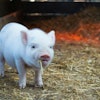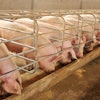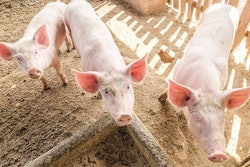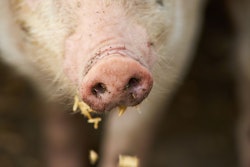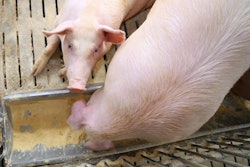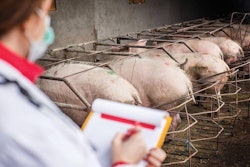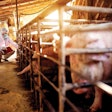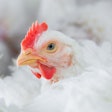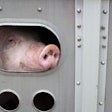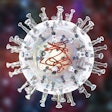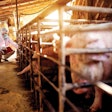
Seizures occurred in just 2 months at 1 port; 70% increase seen from previous year
U.S. Customs and Border Protection (CBP) agents have seized nearly 20,000 pounds of prohibited meat products from China from one U.S. port in just two months.
According to a press release from the CBP, 19,555 pounds of prohibited pork, chicken, beef and duck products arriving from China were intercepted at the Los Angeles/Long Beach Seaport from April 6 to June 6. Most of the seized products were found in boxes of headphones, door locks, kitchenware, LCD tablets, trash bags, swim fins, cellphone covers, plastic cases and household goods “in a clear attempt to smuggle the prohibited meats.”
CBP agriculture specialists identified, examined and seized 12 shipments containing a total of 834 cartons that lacked the required U.S. Department of Agriculture (USDA) entry documentation.
“Our close collaboration with our USDA strategic partners has resulted in an increased number of prohibited food products interceptions in a relatively short period of time,” said Carlos C. Martel, CBP director of field operations in Los Angeles. “CBP agriculture specialists remain committed and vigilant of foreign animal disease threats.”
China’s animal population is affected by several infectious diseases that can affect agriculture. African swine fever (ASF) has decimated China’s pig herd in recent years, but has not arrived in North America. Pork products from ASF-affected countries may introduce the virus to the United States, crippling the domestic pork industry and U.S. pork exports valued at $6.5 billion annually. AFS is spread by contact with an infected animals’ bodily fluids.
“Foreign plant pests and animal diseases like ASF and exotic fruit flies can cause devastating losses to the agriculture industry. USDA and CBP are committed to working together to intercept illegal products and protect the health of U.S. livestock and crops,” said Helene Wright, USDA State Plant Health Director for California.
In March, U.S. President Donald Trump signed into law a bipartisan bill that will strengthen the country’s protections against ASF. The Protecting America’s Food and Agriculture Act of 2019 authorizes CBP to hire additional inspectors, support staff and K-9 teams to fully staff America’s airports, seaports and land ports of entry.
CBP said the interception of prohibited meats from China at the L.A./Long Beach Seaport has increased 70% in the first five months of fiscal year 2020 compared with the same period in 2019. When unmanifiested animal products are discovered, CBP reports the violation to the USDA and issues an emergency action for the expedited destruction of the contraband.
